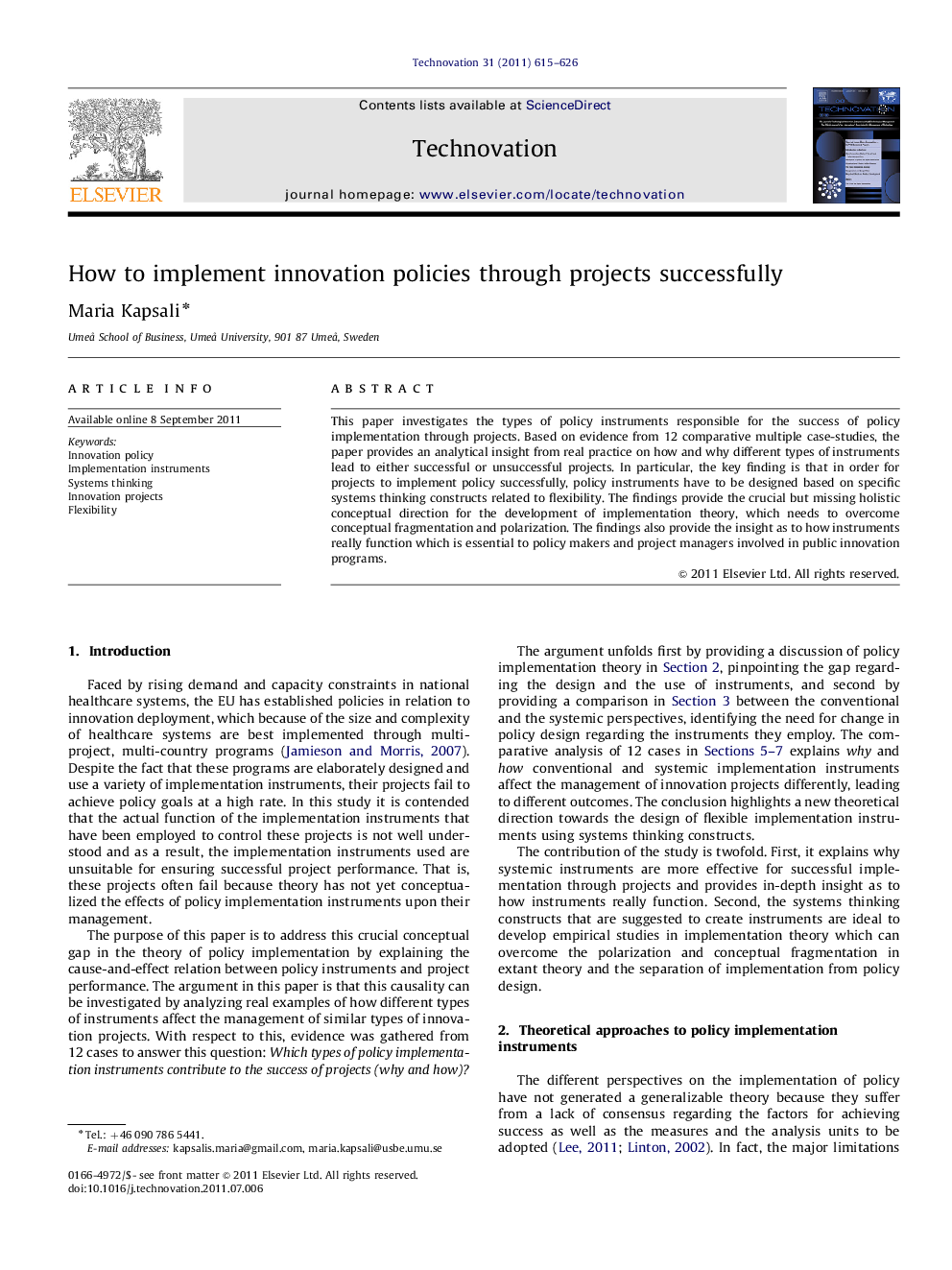| Article ID | Journal | Published Year | Pages | File Type |
|---|---|---|---|---|
| 1022089 | Technovation | 2011 | 12 Pages |
This paper investigates the types of policy instruments responsible for the success of policy implementation through projects. Based on evidence from 12 comparative multiple case-studies, the paper provides an analytical insight from real practice on how and why different types of instruments lead to either successful or unsuccessful projects. In particular, the key finding is that in order for projects to implement policy successfully, policy instruments have to be designed based on specific systems thinking constructs related to flexibility. The findings provide the crucial but missing holistic conceptual direction for the development of implementation theory, which needs to overcome conceptual fragmentation and polarization. The findings also provide the insight as to how instruments really function which is essential to policy makers and project managers involved in public innovation programs.
► We compare the effects of different types of policy instruments on projects. ► Conventional instruments stifle boundary management and operational change. ► Systemic instruments help leaders to communicate, coordinate and control flexibly. ► Build flexible implementation instruments using systems thinking constructs. ► The most suitable construct to build instrument is equifinality.
